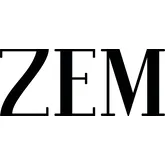Prague, Sept 9 (CTK) – The left political wing is dying out in the Czech Republic, with leftist voters massively switching to PM Andrej Babiš’s ANO movement whose rhetoric sounds leftist but in fact its steps are no genuine left-wing policy, Erik Tabery writes in the editorial of the weekly Respekt today.
A recent CVVM public opinion poll showed that out of young Czechs aged from 15 to 20, only less than one percent are left-oriented. In the age category under 30, only 2.5 percent and 6 percent declare their adherence to the left and the left centre, respectively. Among those aged 30-44, 5 percent are left and 11.6 percent are centre-left oriented, the poll showed.
Its results prove that the left wing is dying out among the young Czech population.
However, this is also true of other age categories, Tabery writes and quotes from the pollsters’ report: “Since the late 2013, there has been a permanent and very sharp decline on the left, which continued in the past year, despite a certain slowdown, as a result of which the proportion of the left wing’s representation [among the Czechs] has fallen from its historical maximum of over two fifths to the current historical minimum of below one quarter.”
The decline obviously copies the period since Andrej Babiš’s (ANO) emergence on the political scene, Tabery writes.
Established in 2012, Babiš’s ANO ended strong second in the general election in 2013 and smoothly won the election in 2017. Babiš was finance minister in 2014-17 and prime minister since the end of 2017.
Of course, the CVVM poll results may simply be influenced by the respondents’ incapability of ascertaining their political orientation correctly. They may be claiming their adherence to a political wing they actually do not belong to.
Another explanation of the poll results may be that the division of the electorate into the left- and right-wingers makes no sense any more. The current minority government of Babiš, a billionaire, has been kept afloat by the Communist Party (KSCM) comrades.
Vaclav Klaus Jr, when asked by media how it comes that his new conservative Tricolour party’s supporters include leftist politicians, said that some previously antagonist streams have approximated of late.
Relations between political streams are no longer determined by economic issues and the approach to the extent of redistribution, but by their stances on issues such as refugees. This is also probably why parties are less and less speaking about their particular programmes and goals, and prefer commenting issues related to the “cultural war” such as refugees, cyclists, homosexuals etc.
However, the matter-of-fact tasks still do exist, Tabery writes, mentioning problems such as the soaring prices of housing, low pensions, shortage of teachers and swelling bureaucracy.
Politicians feel that it is easier and more effective to speak about issues connected with values (which most often means their criticising of the values promoted by others). This costs them nothing and people feel attracted by it.
Even people with other than leftist views must wish that there be a democratic left in the Czech Republic. True, Babiš’s ANO movement has attracted leftist voters, but its steps such as an increase in pensions – however badly needed – mean no well considered leftist policy.
The charm of the modern European social democracy rested in their complex vision of a socially just society. Instead, the current Czech system has been built as depending on the “mercy” of the ruling alpha male, who decides on whom to reward.
After the ANO movement disappears from the scene, the Czech Republic might face a complete reconstruction of its political scene, with the left wing having the worst ever starting point, since it is ceasing to exist now, Tabery concludes.
rtj/t/kva












 Reading time: 3 minutes
Reading time: 3 minutes 

























